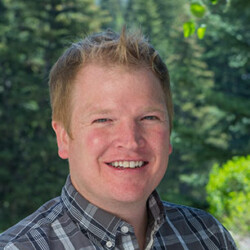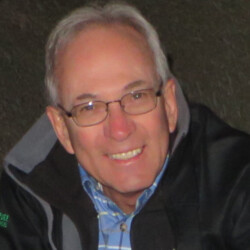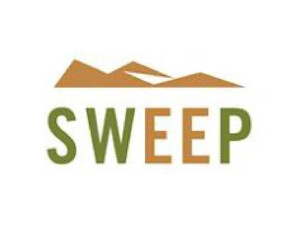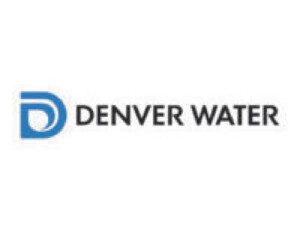Join our panelists as we:
- Explain the process for renegotiating the interim guidelines, which the U.S. Bureau of Reclamation kicked off just last month.
- Hear a variety of perspectives on what’s at stake and what is needed in the upcoming renegotiations.
- Break down how these guidelines will impact not just the health of the Colorado River, but the West’s water future.
Panelists

John Berggren
Senior Water Policy Analyst
Western Resource Advocates
John Berggren is a Water Policy Analyst for Western Resource Advocates, where he works to advance water conservation and efficiency policies at the regional, state, and local levels by engaging with municipalities, water managers, state officials, and other stakeholders throughout the region. Much of this work is at the intersection of water and land use planning with the hopes of helping communities become as water efficient as possible. John serves on the City of Boulder’s Water Resources Advisory Board, is a member of the Colorado Water and Land Use Planning Alliance, and is certified as a Qualified Water Efficient Landscaper (QWEL). He has a PhD in Environmental Studies and Water Policy from the University of Colorado at Boulder, a MHS degree in Environmental Health Sciences from the Johns Hopkins Bloomberg School of Public Health, and a BA in Public Health from Johns Hopkins University.

Mark Harris
General Manager
Grand Valley Water Users Association
Mark Harris is the General Manager of the Grand Valley Water Users Association (GVWUA) in Grand Junction, CO.
The Grand Valley Water Users operates the Grand River Diversion Dam, commonly known as the Roller Dam, on the Colorado River in Debeque Canyon, the Government Highline Canal System that delivers water to the Grand Valley Water Users’ Association, Palisade Irrigation District, Mesa County Irrigation District, and to Orchard Mesa Irrigation District, with whom the Association is a partner in the operations of the Grand Valley Power Plant in Palisade. The Grand Valley Water Users operates 50 miles of canal, over 130 miles of laterals, and 100 miles of drainage facilities.
Harris has lived on the family farm since 1958. He has been active in agricultural business, water, and civic concerns on a local, state, and national level. He graduated from Colorado College majoring in Economics and completed a Masters Degree in Ag Development from Texas A&M University. Harris also serves on the Colorado Mesa University Water Center Advisory Council.
Harris and the GVWUA have been actively involved in drought contingency, resiliency, and conservation planning and Demand Management issues on local, state, and regional levels since his joining the Water Users in 2013.

Colby Pellegrino
Deputy General Manager of Resources
Southern Nevada Water Authority
Colby Pellegrino is the Deputy General Manager of Resources for the Southern Nevada Water Authority and the Las Vegas Valley Water District.
After joining the agency in 2003, Pellegrino served as an instrumental part of the Water Resources division, supporting Colorado River modeling efforts to anticipate changes caused by climate change, reduced flows, and other inputs.
In her current capacity, she is responsible for the management of the Water Authority’s water resource portfolio, which includes protecting Nevada’s interests and rights to Colorado River water through interstate negotiations, developing regional water conservation programs, managing groundwater resources, and water resource planning.
Pellegrino also serves on the Board of Alliance for Water Efficiency, a nonprofit organization dedicated to the efficient and sustainable use of water and water conservation advocacy throughout North America. A native of Las Vegas, she earned her Bachelor of Science degree in civil engineering from the University of Nevada, Las Vegas, and her Master of Business Administration from Mississippi State University.

Heather Tanana
Assistant Research Professor
S.J. Quinney College of Law – University of Utah
Heather Tanana is a citizen of the Navajo Nation and an Assistant Research Professor at the S.J. Quinney College of Law – University of Utah. She is also Associate Faculty with the Johns Hopkins Center for American Indian Health.
Tanana practiced law for several years with Richards Brandt Miller Nelson before completing a clerkship with U.S. District Court Judge David Nuffer and joining the world of academia. Her career has been driven by her personal commitment to serving her people. She serves on the board of the Urban Indian Center of Salt Lake and volunteers her time on other work groups to promote diversity in the legal field, including the Rocky Mineral Law Foundation Diversity and Inclusion Task Force, Association of American Law Schools Section on Indian Nations and Indigenous Peoples, and American Bar Association Native American Resources Committee.
Tanana graduated from Dartmouth College with a Bachelor of Arts degree in biology modified with psychology, received a master’s degree public health from Johns Hopkins, and her Juris Doctorate from the University of Utah.
Moderator

Orla Bannan
Strategic Engagement Manager
Western Resource Advocates
As the Strategic Engagement Manager for the Healthy Rivers Program, Orla Bannan works to address water scarcity issues in Colorado by encouraging regional water boards to adopt conservation-oriented management approaches, and by helping emerging leaders in local communities get more involved in water decision-making. She works closely with decision makers and partner organizations in Colorado to ensure statewide water issues are addressed in a sustainable way for all constituents.
Prior to joining Western Resource Advocates in 2017, Bannan worked as an in-house attorney for Vail Resorts, where her work addressed a wide range of land use and natural resource issues in the Mountain West. Before joining Vail Resorts, she worked as a real estate attorney in New York City.
Bannan received her Bachelor of Arts degree in Psychology and a Bachelor of Laws from the University of Sydney, Australia.
Additional Resources:
The Colorado River is an essential water source for more than 40 million people, 5.5 million acres of agriculture, 30 federally recognized tribes, and the vibrant wildlife along its course through the Southwest. But the river is under threat — the impacts of climate change and the continued drying out of our region have reduced water levels dramatically. The amount of water flowing in the river today is significantly less than the early 20th century when the Colorado River Compact of 1922, the original agreement between the seven basin states divvying up the river’s water, was put in place.
The initial Interim Guidelines were developed in 2007 in response to these changing conditions on the river. These guidelines helped coordinate how much water is kept in or released from Lake Powell and Lake Mead, mapped out how shortages will be implemented if reservoir levels and water supplies reach specified elevations, and facilitated state and federal cooperation to avoid shortages. They were an important first step in helping states and water resource managers adapt to the changing hydrology of the river, and work as a tool for planning against an increasingly unpredictable future.
As the name suggests, the 2007 guidelines are an interim agreement and set to expire in 2026, providing a rare and historic opportunity to protect and re-set the equilibrium of the Colorado River. States, tribes, communities, industries, and agriculture interests, among others, will be vying to protect their share of the river’s water in upcoming re-negotiations. WRA and our partners are working to ensure the Colorado River will remain healthy and flowing now and for future generations.
We can’t afford to miss this pivotal moment for Western states to start planning for a future with less water in the Colorado River.
Thank you to WRA’s sponsors
Premier Sponsor

Signature Sponsors






